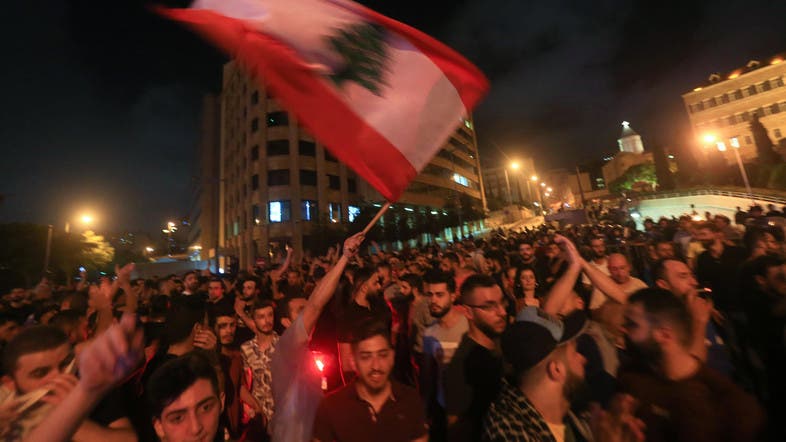Thousands of people demonstrated in Beirut on Thursday against the government’s management of a dire economy in one of Lebanon’s biggest protests in years, leading the Cabinet to pull a proposed new levy on WhatsApp calls.
Protesters blocked roads across Lebanon with burning tyres, broadcasts showed, the second time in less than a month Lebanon has seen demonstrations expressing anger at the political elite.
The demonstrations have been fueled by stagnant economic conditions exacerbated by a financial crisis in one of the world’s most heavily indebted states. The government is trying to find ways to bring down its gaping budget deficit.
Earlier, the Cabinet had unveiled a new revenue raising measure, agreeing a charge of 20 cents per day for calls via voice over internet protocol (VoIP), used by applications including Facebook-owned WhatsApp, Facebook calls and FaceTime, Information Minister Jamal al-Jarrah said.
He also said ministers would discuss a proposal to raise value-added tax by 2 percentage points in 2021 and a further 2 percentage points in 2022, until it reaches 15%.
But as protests spread across Lebanon, Telecoms Minister Mohamed Choucair phoned into Lebanese broadcasters to say the proposed levy on WhatsApp calls had been revoked.
Prime Minister Saad al-Hariri had said the measure was expected to net about $200 million in revenues for the state per year according to a statement from his press office.
Lebanon has only two mobile service providers, both state-owned, and some of the most costly mobile rates in the region.
“We are not here over the WhatsApp, we are here over everything: over fuel, food, bread, over everything,” said a protester in Beirut who gave his name as Abdullah.
Protesters scuffled with the security forces in Beirut. “The people want to topple the regime,” some chanted.
Lebanon is under pressure to approve the 2020 budget soon, a step that may help it unlock some $11 billion pledged at a donor conference last year, conditional on fiscal and other reforms.
The government has declared a state of “economic emergency” as Lebanon faces debt burdens, low growth, crumbling infrastructure and strains in its financial system from a slowdown in capital inflows.








































admin in: How the Muslim Brotherhood betrayed Saudi Arabia?
Great article with insight ...
https://www.viagrapascherfr.com/achat-sildenafil-pfizer-tarif/ in: Cross-region cooperation between anti-terrorism agencies needed
Hello there, just became aware of your blog through Google, and found ...